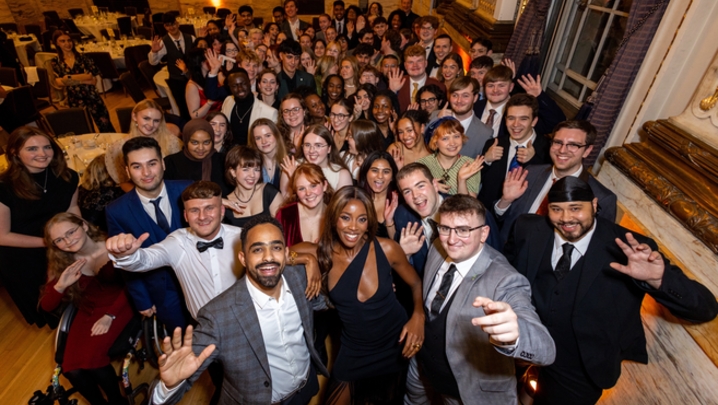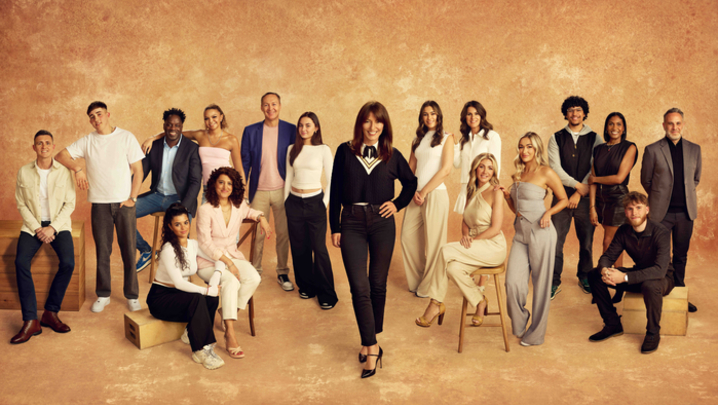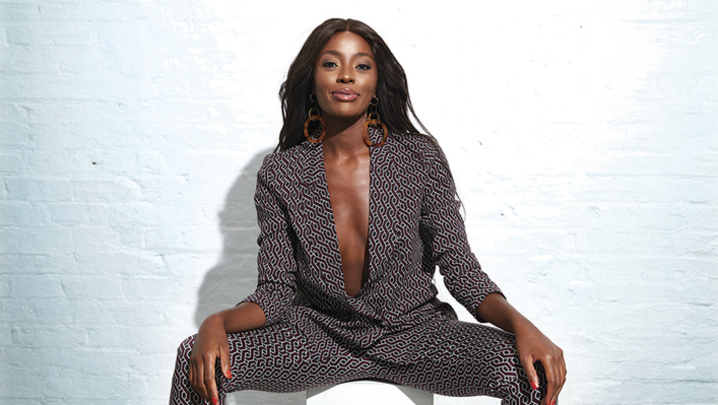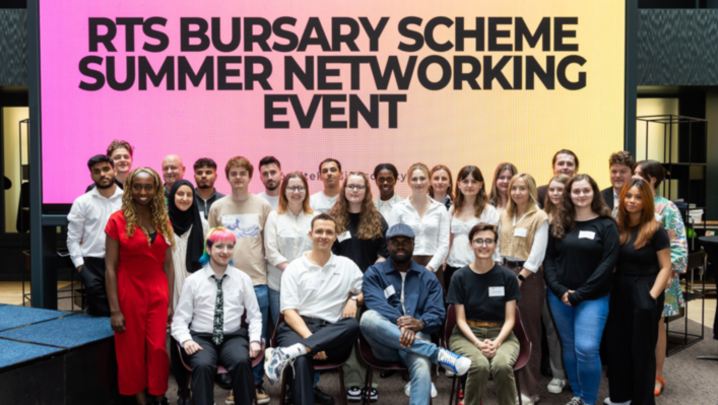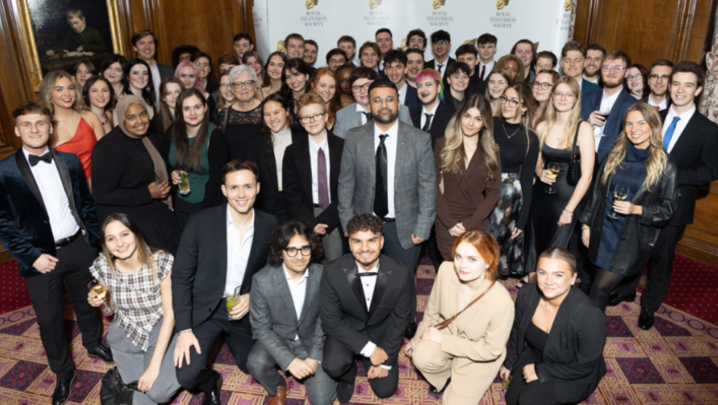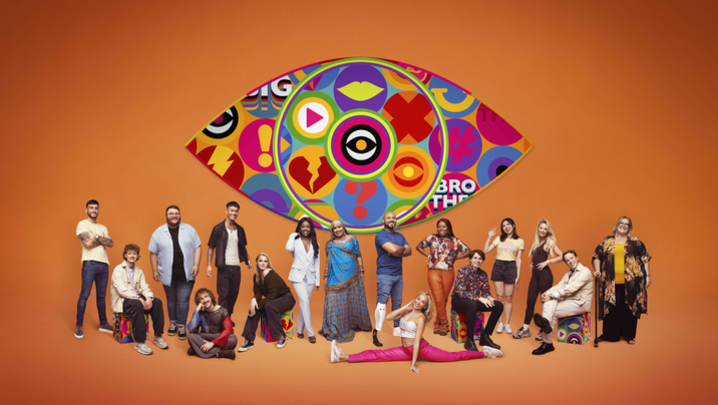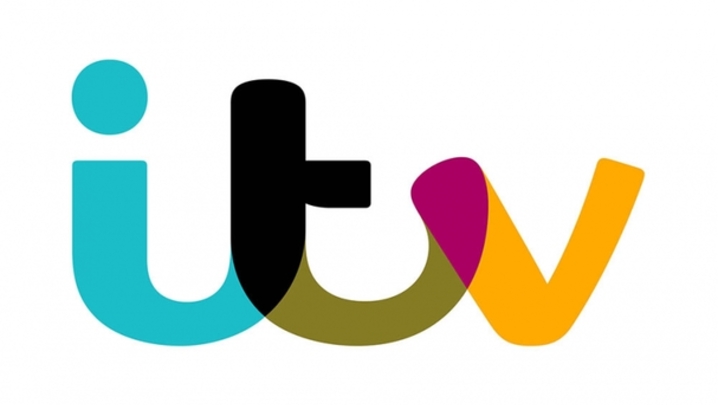Since joining the RTS Bursary Scheme in 2014, Richard Walker has been spinning all kinds of TV production plates across London and Manchester; most recently, his first producer-director credit for ITV’s Unfiltered Women.
Richard joined the Scheme in its inaugural year. One of its core perks is a personal industry mentor, carefully selected to match each Scholar’s aspirations. As a budding documentary filmmaker, Richard was paired up with Peter Dale, ex-Head of Documentaries at Channel 4 and founder of production company Rare Day. With Dale’s guidance, Richard prepared to pitch his documentary concept Gay for Views for his final year project. Only a few projects were chosen by lecturers, but Richard won the pitch, helming a group of fellow students and getting his first taste of directing.
Now, 10 years after enrolling in the scheme, Richard is a veritable Swiss Army knife of experience and expertise. He has data-wrangled, self-shot and worked on classic British TV shows such as The Undateables and SAS: Who Dares Wins. Dickinson’s Real Deal gave him his first job whilst he was still at university, where he gained the invaluable experience of learning to make a good cup of tea, despite not being a tea or coffee drinker himself.
Richard’s recent credit on Unfiltered Women is the culmination of all of this hard work. The chat show is part of ITV’s Fresh Cuts strand, which publishes short form informative series on ITVX and YouTube. In previous years, these documentaries have been centred around Black History Month, but this year ITV has expanded the strand to include Disability History Month. 2024’s Fresh Cuts will give six talented people their first Producer Director credits.
Once Richard found out that he was one of the lucky six, he was handed a treatment for Unfiltered Women. Multistory Media developed the concept, which platforms disabled women to share their ‘unfiltered’ thoughts. Richard set about researching topics and ideas, with insight from his personal experience with disability.
A zoom call with the panellists – author Samantha Renke, social media star Fats Timbo, and ex-Married at First Sight star Jay Howard – gave them the chance to speak openly about their experiences, answering questions both broad and narrow: “can you tell us any stories?”; “how do you feel about travel?”

After this initial call Walker set about turning these conversations into a panel show. “You don’t want it to just feel like a podcast. There had to be that sort of visual angle,” he says. Watching the episodes, there are elements which would be lost in an audio format, such as Timbo introducing her neon pink stool (nicknamed ‘Bonquisha’), which allows her to rest her feet and feel more comfortable. In the second episode, Attitudes to Disability, the panellists are presented with a list of terms on a screen, such as ‘amputee’ or ‘limb difference,’ which kick-start conversations on what language should be used when discussing disability.
Richard had to adapt on the job. Even when filming with a fully-fledged concept in mind, the panellists would sometimes tell such profound stories that they sent the episode in a whole new direction. In episode one, Renke shared the story of her assault with her fellow panellists – an incredibly personal and important story that needed space to breathe and for the panel to let out their tears. Richard believed such openness was a marker of how comfortable the panellists felt on set, and hopes this will help "non-disabled people watching get an insight into what people can go through." When we spoke, Richard was still deep in the editing process, "killing darlings" to distil the hours of “unexpected" stories that arose through filming into 10-minute-long episodes.
Richard still feels that it was his final university project Gay for Views that made him catch “the directing bug” and fall in love with factual television. He has his mentor Peter Dale to thank for guiding his first steps into the genre, but given that the project also had to be self-funded, students outside of the middle class were on the back foot. The financial help from the RTS Bursary Scheme therefore helped level the playing field, facilitating the many coaches to and from London where he filmed with the YouTuber subjects of the documentary.
The RTS Bursary Scheme has been running for 10 years now, and the size of the cohorts has grown from 20 to 41. As one of the oldest alumni, Richard’s advice to the new Scholars is to treat the Scheme as your first network. “When I finished university, that meant I knew people in London because they'd already graduated, and having these people who you can ask, ‘am I being paid the right amount’, or, ‘should I move to Manchester?’, was invaluable.
“These people can be your biggest ally when getting into this industry. You can go on that journey together.”
The RTS just welcomed its newest cohort of Bursary Scholars for 2024. If you’re a student who wants to get into the industry, sign up for our student membership and we'll inform you when the scheme opens for applications.
If you’re interested in supporting the next generation of TV talent, get in touch with us about becoming a mentor.
Unfiltered Women is avaliable to watch on ITVX or YouTube.


